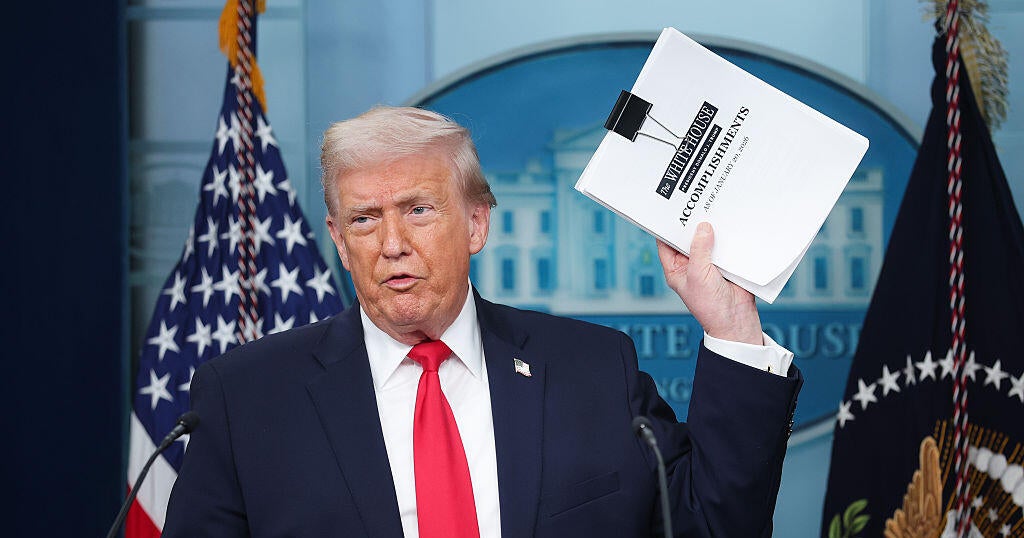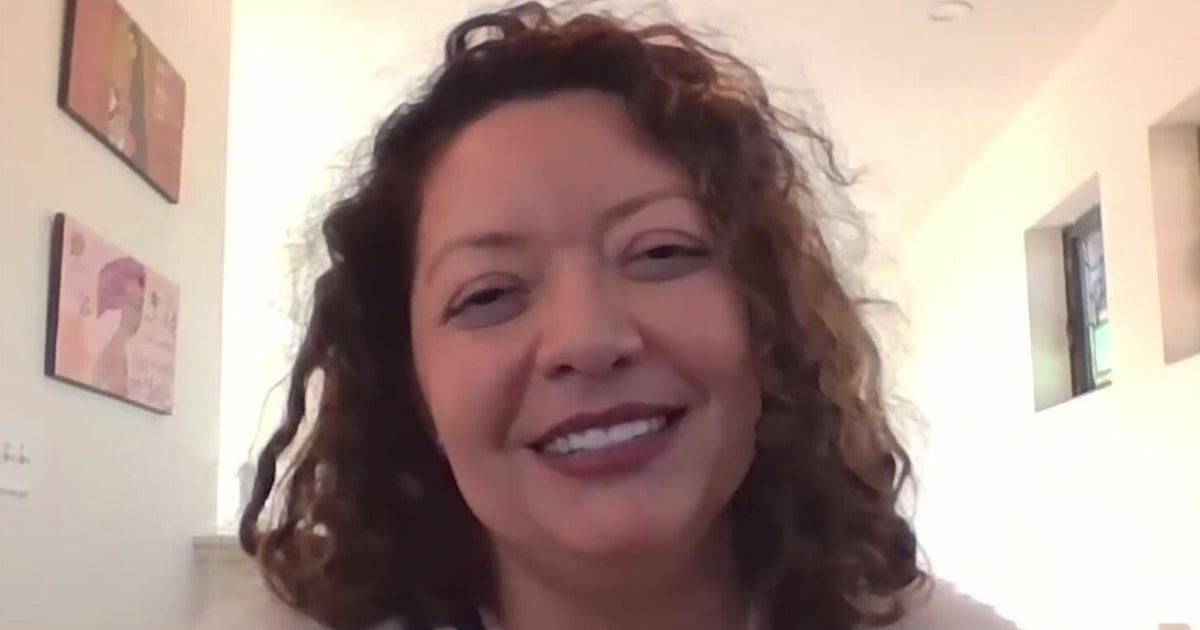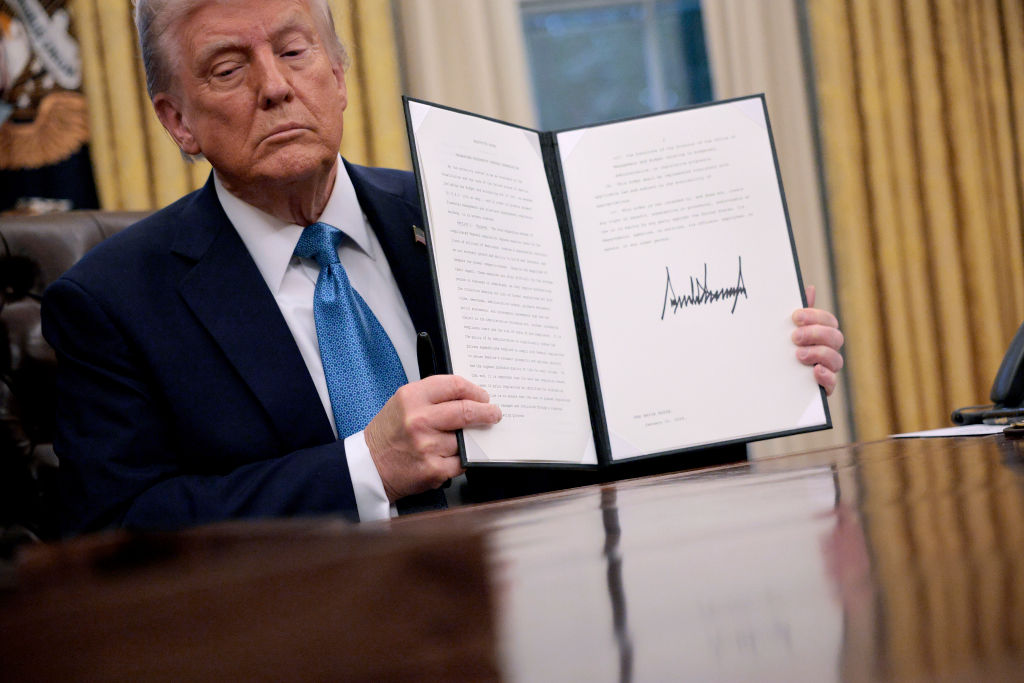On the Canadian border with a Mexican cartel smuggler
To get drugs and people across the United States border, a Mexican man named Javi carefully traces a route through dangerous terrain. A self-described member of Mexico's Sinaloa cartel, he says the cartel never loses: If a situation ever becomes unsafe and he has to turn people around mid-route, Javi says he still must give the cartel their cut of the deal. Not only does he have to be on the lookout for border guards eager to arrest him, but he also must keep himself and the people he is smuggling physically safe.
Such is life as a smuggler on the U.S. border with Canada.
President Trump has said the situation on America's northern border has contributed to deterioration of America's alliance with Canada. Trump recently imposed 25% tariffs on some Canadian goods, saying America's northern neighbor has allowed fentanyl and undocumented migrants to flood the United States.
Since smugglers bring both, 60 Minutes spoke with one to get a sense of the situation. Javi, the man 60 Minutes spoke with, is a pseudonym. He agreed to speak only if his identity was not revealed. Interviews with him were conducted in Spanish.
Finding a smuggler on the northern border was easy. There is a black market of human traffickers who openly advertise their services on social media and guarantee safe passage across the northern border for migrants from all over the world. Their social media posts are written in languages like English, Spanish, and Punjabi. They use global languages for a global trade: There were 97 nations represented in the undocumented migrants apprehended at Canada's border last year.
Convincing someone who works for the Sinaloa Cartel to do an interview, however, was more challenging. It took months of phone calls and texting between Javi and CBS News producer Louisa Garcia to earn his trust and convince him to speak with 60 Minutes. Javi was frank when asked what might happen if members of the cartel found out he spoke with American media.
"They would kill me," he said in Spanish. "The cartel doesn't forgive."
Although it's not possible to verify everything Javi said, a source in Canadian intelligence told 60 Minutes that Javi's story is consistent with the cartel's human and drug smuggling operations.
To prove his account, Javi sent photos of guns he says he carries and videos of migrants he says he has smuggled into the United States. He said they come from all over the world, including India, Spain, Brazil, and Colombia. He said he leads them through the woods, while others drive migrants to and from the border.
According to Javi, each migrant pays $3,000 for the trip. Javi said $500 of that goes to the cartel, a cut goes to drivers, and to Javi, about $1,000 for each migrant he guides. He said the knowledge he has cultivated makes the money worth it for the migrants.
"The route is learned through experience," he said. "You have to know the terrain. The only way to know the routes is by exploring on your own. For example, we recognize the spots because all of us who work in this have worked as guides on the Mexico-U.S. border. That's a much more heavily monitored and guarded border, so it's easy to spot the cameras and sensors."
Javi told 60 Minutes his business works mostly through recommendations. Once someone has crossed safely into the United States, they pass his name on to their friends and family back home looking to do the same.
Still, the number of crossings remains far lower on the northern border than on the southern border. While the border between the U.S. and Mexico saw 1.5 million illegal crossings last year, there were fewer than 24,000 illegal crossings from Canada.
Javi said he ultimately agreed to speak with 60 Minutes to warn potential future migrants about the dangers of crossing the northern border without a guide like him.
"It's good for people to know that they shouldn't risk it, that there are really a lot of dangers," Javi said. "And all the mistakes that are made make the border hotter [for us], make there be more surveillance, because people go alone. A lot of people go alone, and that complicates things more for us."
The "us" Javi referred to is the Sinaloa Cartel, one of the largest and most notorious in Mexico. In February, both the United States and Canada designated it and other cartels as terrorist organizations. Javi said that at one section of the border, which he said smugglers call the "line," some Americans allow smugglers like him to use their property to move migrants — and get paid to do it.
"Our driver comes in, loads up, and we pay them a fee," Javi said. "There are different entry points, but it's from $500 to $1,000 per person."
Javi told 60 Minutes he began smuggling drugs for the cartel when he was a teenager. Back in Mexico, he had wanted to be an electrical engineer but said it is too late to change careers now — the cartel is aware he knows too much.
Eventually, he said, he went to the border between Mexico and the U.S. and started guiding migrants north, learning how to cross the Sonoran Desert in a matter of days. He said when the opportunity to go to the Canadian border came up, he took it.
Now, he said, his business is changing with the Trump administration. Today, Javi said he is getting more requests to smuggle people out of the U.S — and into Canada.
"Most of them are Venezuelans," he said. "Those people are afraid of being deported to their countries. Normally before we didn't see that much, maybe out of every 30 people we crossed, three or four would come up. Now, maybe out of every 10 we cross, five go up [to Canada]."
Canadian Kelly Sundberg said the data confirms this shift.
"Canada can expect a tsunami of illegal immigrants fleeing American authorities and coming into our country," said Sundberg, who spent 15 years as an officer in the Canadian Border Services Agency and now researches border security at Mount Royal University in Calgary. "The numbers already are going up."
Sundberg attributes the change to the Trump administration's increasing removal of undocumented migrants, particularly actions such as sending alleged Venezuelan gang members to Guantanamo Bay. Canada's lax border compounds this, Sundberg said.
"I hope I'm wrong, but it would appear that we're going to be overwhelmed by the illegal immigrants fleeing American authorities coming into our country," he continued. "And they very well might be bringing guns and drugs with them."
Sundberg noted that data shows 90% of guns used to commit crimes in Canada have originated in the United States.
As for drugs, at the northern border, the flow goes both ways. Javi said that cocaine comes up through the United States from Mexico to be brought into Canada, while smugglers bring fentanyl from China to the U.S. through the northern border.
Still, only about 0.2% of the fentanyl seized in the U.S. last year came in through Canada: U.S. Customs and Border Protection seized 43 pounds of fentanyl at the northern border, compared to more than 21,000 pounds confiscated at the U.S.-Mexico border.
60 Minutes asked Javi if he ever thinks about the people who die from drugs like fentanyl.
"Yes, I think about it, but people die from drugs everywhere, in every place," he said. "The problem here isn't that people die. The problem is that as long as there's demand, there will always be someone to take it. There will always be someone to sell it, someone to bring it. Unfortunately, here, for money, we do anything. It's business, it's a business."
And that business, it seems, will continue. Javi said increased border patrols in Canada would not stop the Sinaloa cartel from operating there.
"Canada's border is much larger than Mexico's," he went on. "There are more entry points through Canada than through Mexico, a lot more entry points. So that won't stop us."
Photo of seized fentanyl courtesy of U.S. Customs and Border Protection.
The video above was produced by Brit McCandless Farmer and edited by Scott Rosann.





